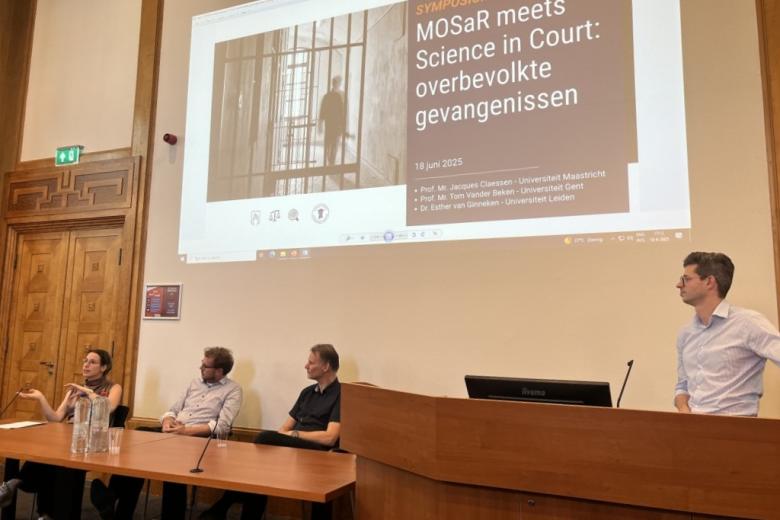The pleasures of a failing city
Berlin is a fun place. Several of my friends and colleagues have visited it during the last weeks and months. And they were not alone. In 2015, a record number of more than 12 million tourists visited Berlin, most of them staying for a few days. Why has the city become so attractive? First of all, it is a cultural hotspot. It has three opera houses, four major symphony orchestras, more museums than New York and countless hip clubs for younger generations. Secondly, the history of the city is very interesting. It has been the stage for some of the most pivotal historic events, especially during the last century: the roaring twenties, the Third Reich and the country’s separation during the Cold War. And last but not least, Berlin has become a very innovative and offbeat place.
Yes, Berlin is fresh and attractive – at least for tourists. But if you live there, Berlin can be a different place. As the New York Times has recently pointed out, the administrative structure of the city has become less and less functional and in some cases it is even failing. This is caused by several factors, but it can, to a large extent, be attributed to a combination of financial decline and a lack of political leadership.
Long gone are the days when the best politicians aspired to become Regierender Bürgermeister (governing mayor) of Berlin. Willy Brandt and Richard von Weizsäcker, for example, were remarkable men who could rally the city behind them in most difficult of times. In recent years, however, Berlin has been governed by a less stellar brand of politicians. One of them was forced to resign due to a real estate scandal, another one claimed that a complete lack of charisma was his true strength and after that came a mayor who declared that Berlin was “arm, aber sexy” (poor, but sexy), paying more attention to events then to building up economic structure or maintaining a functioning city administration.
The results of these years of stagnation have become more than visible by now. The crime rate is rising, the drug market is expanding and public spaces such as school buildings and playgrounds are deteriorating. The Bürgerämter (citizen’s registration offices) are hopelessly understaffed by years of budget cuts. My daughter, who is currently living in Berlin, has experienced this first hand. When you move to Berlin you need to register your residence within 14 days to avoid a late fee. However, it is virtually impossible to get an appointment there within three months. And to make matters worse, hackers often hijack the available appointments that are issued online and sell them on the black market. German Gründlichkeit? It sounds more like a banana republic.
Those who cannot cope with this just flee the city. Just recently, commentator in a Berlin newspaper noted that “people in their first marriage, with Christian beliefs, who pay taxes, who are allergy-free and who are not engaged in some sort of therapy” are becoming an exotic species in Berlin. In any case, long-term residents will have to develop a talent for improvisation and some sort of ironic cynicism to get along.
Unfortunately, the city is also failing on a much larger scale. The disastrous construction of a new airport has become a symbol of political incompetence. It was supposed to open in 2007, but after many pitfalls such as severe construction faults, corruption problems and planning errors, it is still unclear when this airport will be able to make its current opening deadline in 2018. Moreover, it has already become clear that the airport will be too small and partially outdated when it opens. And to add insult to injury, taxpayers have to pay somewhere between 20 and 30 million euros for each month that the airport remains un-operational. Millions that could be better invested in the failing infrastructure of the city.
The problems encountered while dealing with the refugee crisis are another example of administrative failure. While this is a continuing challenge for all German communities, Berlin’s authorities have been having the most organizational problems by far. Photos of families – women and children waiting in cold rain on a parking spot before the responsible offices – went all over the world.
Maybe the image of a failing city contributes to the attractiveness of Berlin for visitors, making it a city characterized by its anarchistic spirit. However, it is clear that the city administration must get its act together, because otherwise the balance between the charm of a non-conformist place and a city that provides good services for its people will tip the wrong way and Berlin will turn into a purely commercial, adult version of a European amusement park. That would be a real pity, as Germany would loose a most unique place. And I would be very upset, as I still love this city, because it is uniquely German and un-German at the same time. Therefore, the old saying “Ich hab’ noch einen Koffer in Berlin”, is also true for me.
-
MOSaR meets Science in Court: overbevolkte gevangenissen
Op woensdag 18 juni organiseerden het Maastrichts Onderzoekscentrum voor Samenleving en Recht (MOSaR) en Maastricht Science in Court (MSIC) een gezamenlijk symposium over de overbevolkingscrisis in het Nederlandse en Belgische gevangeniswezen.

-
Children’s Rights Research op Universiteit Maastricht: een dag vol ontdekkingen en inspiratie
Voor de meeste kinderen in Nederland is 5 december een magische dag, waarop ze reikhalzend uitkijken naar de komst van Sinterklaas, die cadeautjes en vreugde in huis brengt. Dit jaar beperkten de festiviteiten zich niet tot de voordeur van kinderen. Op dezelfde dag organiseerde de Universiteit...

-
Nieuwsgierigheid, geduld en zelfcompassie
Tijdens mijn werk in de academische wereld heb ik veel mensen ontmoet die me zelfs tijdens hun bacheloropleiding vertelden dat ze echt een academische carrière wilden nastreven. Ik bewonder dat. En ik vond dat altijd intimiderend. Kan iemand écht zeker weten waar hij of zij terechtkomt, vooral als...

